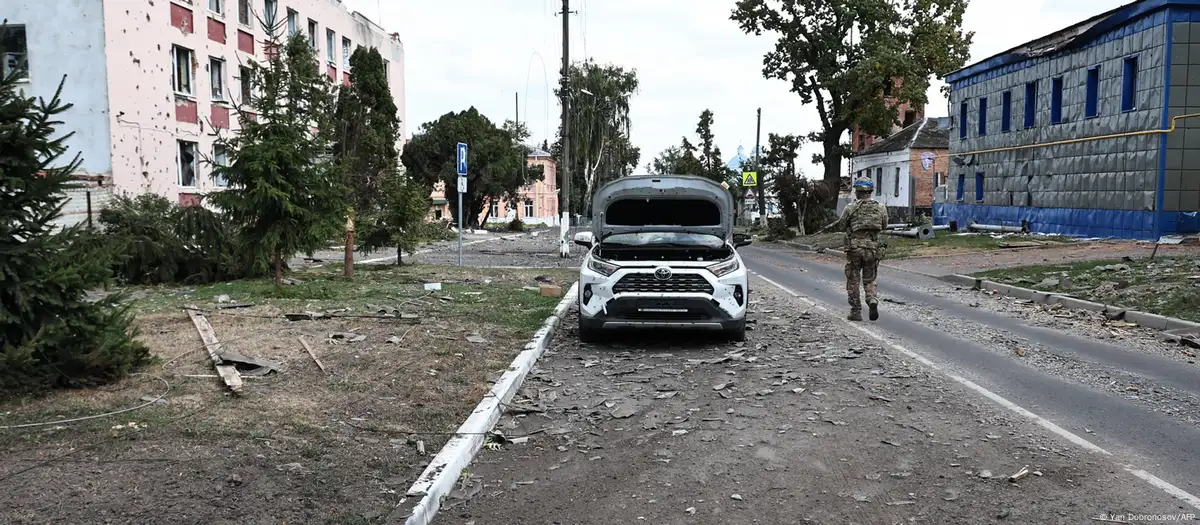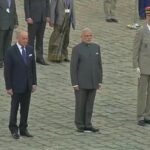Russia ruled out any negotiations “at this stage” with Ukraine on Monday (19.08) after the Ukrainian army’s offensive in the Russian region of Kursk. This unprecedented operation has been going on for two weeks already. kyiv assures that it must serve to force Vladimir Putin into “fair” peace negotiations.
On the side of the European Union, Kiev’s ally, comments are rather rare, in the middle of the summer holidays. Just like at NATO headquarters.
The next meeting on the war in Ukraine is scheduled for the end of August, between the foreign and defense ministers of the 27 member states. In the meantime, Deutsche Welle has questioned experts and politicians on the scope of this offensive in Kursk.
The European Parliament’s rapporteur on Russia, Andrius Kubilius, thus underlines the “political” scope of this operation. Ukraine has shown that it is able to seize the initiative, put the Kremlin’s back to the wall and prove to Western allies that Moscow is not ready for escalation.
Pushing Vladimir Putin to the Ropes
Security expert Roland Freudenstein of Freedom Hub points out that kyiv has managed to “put Russia and Vladimir Putin personally on the defensive.”
For Amanda Paul of the Brussels-based think tank European Policy Centre, it is certainly too early to assess the results on the battlefield, but Kiev’s “courageous and bold move” has managed to “surprise Vladimir Putin, damage his reputation and at the same time boost the morale of Ukrainian troops and citizens.”
The European Union’s position remains unchanged for the time being. Ukraine’s military actions must serve exclusively to defend the country’s sovereignty and security, as an EU official stressed in an informal conversation with DW.
Self-defense
Officially, it can be noted that since the Kursk offensive, the head of European diplomacy, Josep Borell, telephoned the Ukrainian Minister of Foreign Affairs, Dmytro Kuleba, to remind him of Brussels’ support.
An EU spokesman, Peter Stano, considered that Ukraine is authorized to attack the enemy “wherever it deems fit: both on its territory and that of the enemy” as part of its right to self-defense.
Thus, Brussels seems to support the Ukrainian version, according to which Russia uses the Kursk and Belgorod regions to attack Ukraine, including civilian infrastructure.
According to Ukrainian President Volodymyr Zelensky, the Ukrainian region of Sumy, on the Russian border, has been the target of nearly 2,000 attacks carried out by the Russian army from the Kursk territory in recent months. In other words, the incursion into Kursk would be self-defense.
Protecting civilians
A spokesperson for the European Commission nevertheless stressed that the Ukrainian military is responsible for protecting the civilian population. All possible precautions must be taken to minimise the impact of the fighting on civilians. Brussels thus reiterates that Ukraine must respect international humanitarian law.
For the moment, the Commission explains that it has not received “any information that would indicate otherwise” and welcomes the announcement of a humanitarian corridor in the area of operation.
For expert Roland Freudenstein, if Ukraine “tries to achieve military objectives, civilian damage is almost inevitable. But what Ukraine does not do is fire missiles at shopping centres. Russia has done this on several occasions”. He also notes that contrary to the Russian strategy, the Ukrainian army is not attacking the energy infrastructure of Kursk, which is essential for the population.








